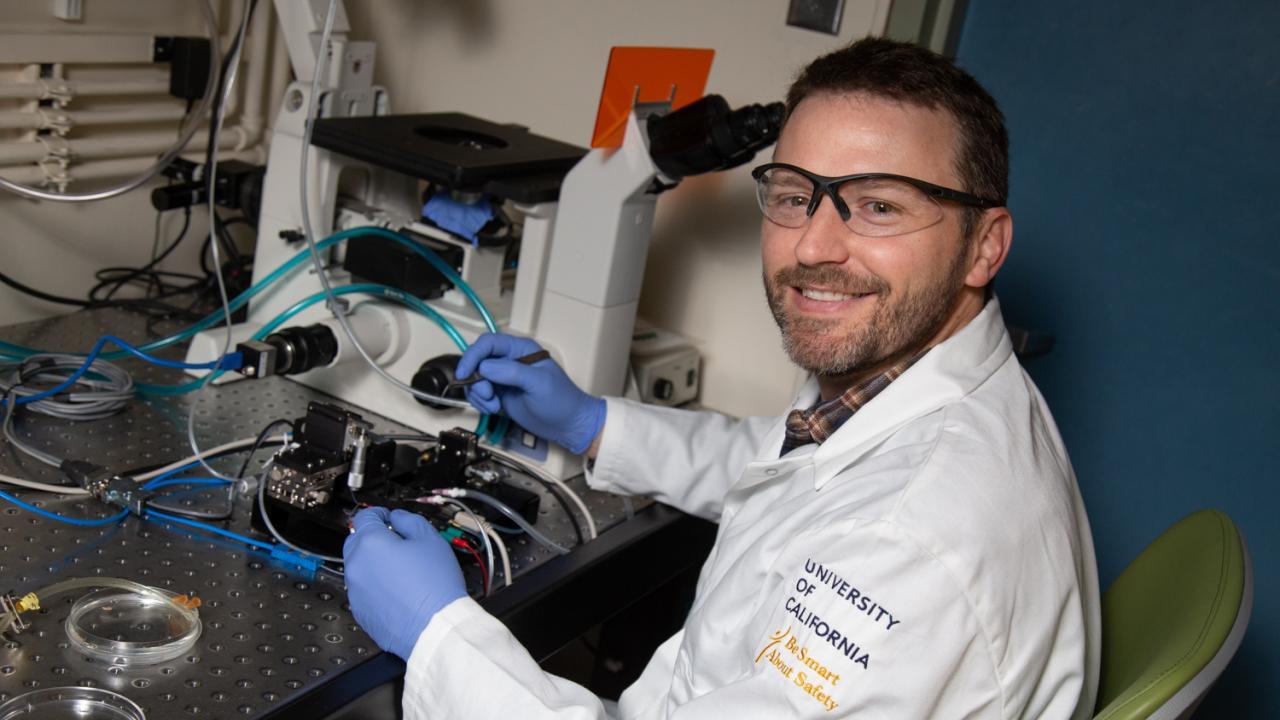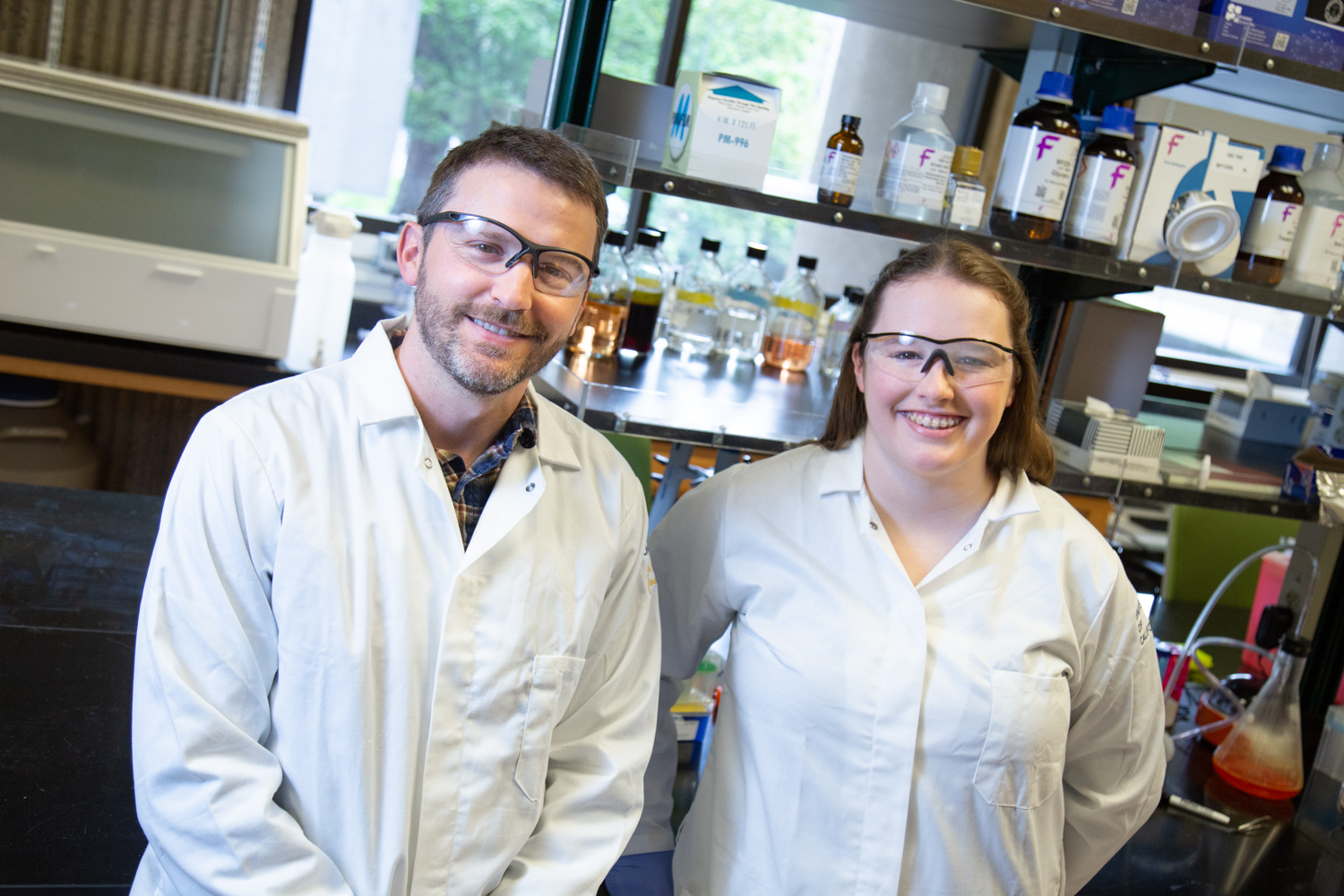
Award Supports Cutting-Edge Biomedical Research to Benefit Children with Cerebral Palsy
UC Davis Assistant Professor Lucas Smith was selected by The Hartwell Foundation to receive the prestigious 2019 Hartwell Individual Biomedical Research Award. The award will support Smith’s research on finding promising therapies that can improve mobility and quality of life for children with cerebral palsy.
“I feel honored and excited to be selected for this award and to join the Hartwell network of researchers working to improve children’s health,” said Smith, an assistant professor in the Department of Neurobiology, Physiology and Behavior at the College of Biological Sciences, and at the Physical Medicine and Rehabilitation Department at UC Davis School of Medicine.
Cerebral palsy in children
Cerebral Palsy is the most common childhood movement disorder, occurring in one of every 250 to 500 births. It is caused by a permanent injury to the brain’s cerebral cortex, the section that controls movement. While the symptoms may differ in type and severity, all people with Cerebral Palsy have problems with movement and posture.
The progressive nature of the disorder with the maladaptation of the musculoskeletal system further impairs mobility and results in muscle contractures, a condition when the muscles become painfully fixed into abnormal positions. Muscle contractures happen when a muscle is so stiff that the joint becomes rigid. The stiffness can be from overstretching the muscle or due to its excessive connective tissue structure.
The mechanisms that lead to contractures are still unknown. Smith’s research seeks to explain these mechanisms and identify better treatment options. According to Smith, highly invasive surgeries enhance joint mobility but further weaken the muscle, and in many cases, the contractures recur. Non-surgical treatments of contractures have poor success rates.
“Our MyoMatrix Lab will be the first to simultaneously measure muscle stiffness and connective tissue structure using advanced microscopic techniques to detect architectural features that lead to stiffness in contracture,” Smith said.
Muscle contractures and stem cells
Muscle contractures are common during childhood growth spurts, where muscle growth is unable to keep up with lengthening bones. A healthy muscle can lengthen in response to a growth stretch, mainly due to the muscle’s stem cells. In case of muscle contractures, the fewer stem cells present limit the muscle’s growth capacity. The stiffness of the muscle tissue in contractures seems to affect the stem cell function and abundance.
“We will apply cutting-edge, single-cell sequencing technology to classify the state of muscle stem cells in contracture and the cell populations that support their function,” Smith said.
Smith and his team will engineer substrates to mimic the stiffness of muscle in both healthy and contractured states. They will determine if the stiffness of the contracture is a key aspect that stem cells sense, thus blocking their ability to support muscle growth.
“We hope that by identifying features that result in excessive stiffness and that disrupt stem cell function will lead to innovative therapeutic targets for treatment of contracture in children with cerebral palsy,” Smith said.
With the Hartwell Foundation award, which provides research support for three years at $100,000 per year, Smith will work on developing therapies that can restore muscle function and promote more mobility and better quality of life for children with cerebral palsy.

Discovering Curiosity: Fighting Neuromuscular Disorders with New Faculty Lucas Smith
In his lab at UC Davis, Assistant Professor Lucas Smith, Department of Neurobiology, Physiology and Behavior, investigates how the accumulation of scar tissue affects muscle mechanics. His aim is to develop therapies that alleviate neuromuscular disorders and restore healthy muscle regeneration.
Hartwell Foundation criteria for award selection
The Hartwell competition funds early-stage, innovative and cutting-edge biomedical research to benefit children in the U.S. On April 1, Hartwell announced its selection of 12 researchers from different institutions to receive a Hartwell Individual Biomedical Research Award.
In selecting awardees, the Foundation takes into account criteria such as “the compelling and transformative nature of the innovation,” and “the extent to which a strategic or translational approach might accelerate the clinical application of research results to benefit children of the United States.”
In addition to the monetary award, UC Davis will receive a Hartwell Fellowship that provides postdoctoral support for two years at $50,000 per year to a candidate that UC Davis designates.
“I am very fortunate to be able to work with my outstanding clinical partners Jon Davids and Vedant Kulkarni along with my collaborators Julia Wang and Kent Leach,” Smith said. “I also appreciate the guidance from my advisory teams in the Neurobiology, Physiology and Behavior and Physical Medicine and Rehabilitation departments who helped pave the way for the first grant for our expanding lab.”
Media Resources
- This article was originally posted by UC Davis Health
